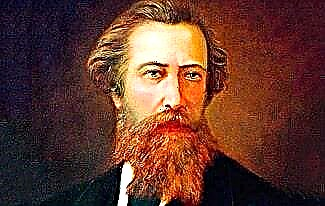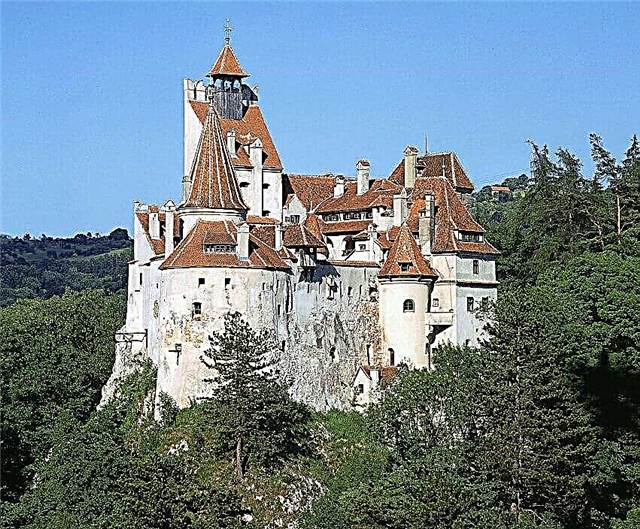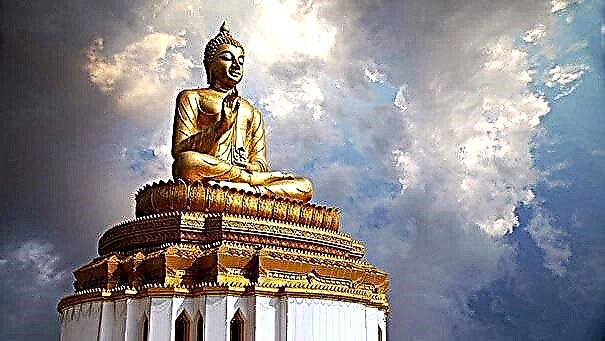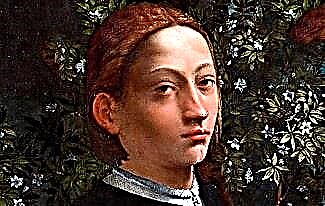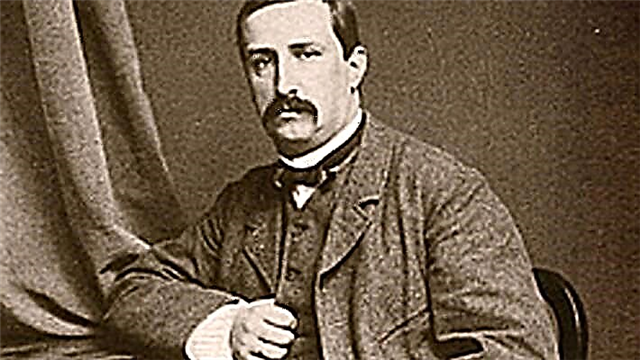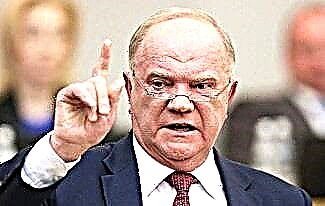Patriarch Kirill (in the world Vladimir Mikhailovich Gundyaev; genus. Patriarch of Moscow and All Russia since February 1, 2009. Before the patriarchal enthronement - Metropolitan of Smolensk and Kaliningrad.
In the period 1989-2009. served as chairman of the Synodal Department for External Church Relations and was a permanent member of the Holy Synod. In January 2009, he was elected Patriarch of Moscow and All Russia by the Local Council of the Russian Orthodox Church.

There are many interesting facts in the biography of Patriarch Kirill, which we will talk about in this article.
So, before you is a short biography of Vladimir Gundyaev.
Biography of Patriarch Kirill
Patriarch Kirill (aka Vladimir Gundyaev) was born on November 20, 1946 in Leningrad. He grew up in the family of the Orthodox Archpriest Mikhail Vasilyevich and his wife Raisa Vladimirovna, who was a teacher of the German language.
In addition to Vladimir, a boy Nikolai and a girl Elena were born in the Gundyaev family. From an early age, the future patriarch was familiar with Orthodox teachings and traditions. Like all children, he studied in high school, after which he decided to enter the Leningrad Theological Seminary.
Then the young man continued his education at the theological academy, from which he graduated with honors in 1970. By that time he had already been tonsured a monk, as a result of which he began to be called Cyril.
It was from this moment in his biography that Cyril began to rapidly develop a career as a clergyman. An interesting fact is that when years later he is elected patriarch of Moscow and All Russia, he will become the first patriarch born in the Soviet Union.
Bishopric
In 1970, Kirill successfully defended his dissertation, after which he was awarded the degree of candidate of theology. Thanks to this, he was able to engage in teaching activities.
The following year, the guy was elevated to the rank of archimandrite, and was also entrusted with the post of representative of the Moscow Patriarchate at the World Council of Churches in Geneva. Three years later, he headed the theological seminary and academy in Leningrad.

While in this post, Kirill carried out important reforms. In particular, he became the first in the history of the Russian Orthodox Church who founded a special regency class for girls - future "mothers". Also, by his order, physical education began to be taught in educational institutions.
When the clergyman was 29 years old, he was appointed head of the diocesan council of the Leningrad Metropolitanate. A few months later, he joined the committee of the World Council of Churches.
In the spring of 1976, Kirill was ordained bishop of Vyborg, and a year and a half later, he was ordained archbishop. Soon he was entrusted with managing the patriarchal parishes in Finland.
In 1983, a man taught theology at the Moscow Theological Academy. The next year he becomes Archbishop of Vyazemsky and Smolensk. In the late 1980s, he became a member of the Holy Synod, as a result of which he took an active part in Orthodox reforms and religious issues.
In February 1991, a significant event took place in Cyril's biography - he was promoted to the rank of metropolitan. In subsequent years, he continued to climb the career ladder, gaining a reputation as a peacemaker. He was awarded the Lovia Prize three times for the preservation and strengthening of peace on the planet.
After the collapse of the USSR, the Russian Orthodox Church of the Moscow Patriarchate (ROC MP) began to actively participate in state affairs. In turn, Cyril became one of the brightest representatives of the Church. It is worth noting that thanks to his efforts, it was possible to unite the ROC with parishes abroad, as well as to establish relations with the Vatican.
Patriarchate
Since 1995, Kirill has fruitfully collaborated with the Russian authorities, and has also been active in educational work on TV. Later, together with his colleagues, he was able to develop the concept of the ROC in relation to church-state relations.
This led to the fact that in 2000 the Fundamentals of the Social Concept of the ROC began to operate. When Patriarch Alexy II died 8 years later, Metropolitan Kirill was appointed locum tenens. The very next year he was elected the 16th Patriarch of Moscow and All Russia.

The President and Prime Minister of Russia congratulated the newly elected Patriarch on this post and expressed their hope for cooperation between the Church and the state. In addition, many high-ranking clergymen, including Pope Benedict XVI, congratulated Cyril.
From that time to the present day, Patriarch Kirill often visits various holy places, communicates with world leaders, participates in international councils and conducts services. He has a reputation for being highly educated and capable of arguing for his words and statements.
In 2016, a significant event happened in the biography of Patriarch Kirill. During a visit to Cuba, he met with Pope Francis. This event was discussed all over the world. An interesting fact is that this was the first meeting of this level in the entire history of the Russian and Roman Churches, during which a joint declaration was signed.
Scandals
Patriarch Kirill quite often found himself in the center of high-profile scandals. He was accused of large-scale trade in tobacco and alcohol products in the early 90s, along with tax fraud.
According to the clergyman and his supporters, such accusations are a provocation. People disseminating such information aspire to simply tarnish the reputation of the patriarch. At the same time, Kirill never filed a lawsuit against journalists who brought such charges against him.

At the same time, the patriarch was criticized and continues to be criticized for a luxurious lifestyle that is contrary to church canons.
In the spring of 2018, a scandal erupted in Bulgaria. Vladyka said that the head of this country, Rumen Radev, deliberately underestimates the role of Russia in the liberation of Bulgaria from the Ottoman yoke. In response, the Bulgarian prime minister said that a person who once served in the KGB has no right to tell anyone what to say or how to act.
Personal life
According to church canons, the patriarch has no right to start a family. Instead, he should give all his attention to his flock, taking care of their well-being.
In addition to church affairs and participation in charity, Kirill plays an important role in state politics. He is present at almost all major congresses, where he expresses the position of the Church regarding the further development of Russia.
At the same time, the man writes books on the history of the Christian Church and Orthodox unity. It is curious that he is opposed to surrogacy.
Patriarch Kirill today
Now the patriarch continues to actively develop the ROC, participating in various events. He often travels to various cathedrals, visits Orthodox shrines and promotes Orthodoxy.
Not so long ago, Kirill spoke negatively about granting Ukraine autocephaly. Moreover, he promised to break off relations with the Ecumenical Patriarchate if Patriarch Bartholomew did not change his attitude regarding the independence of the Ukrainian local Church.
According to Vladyka, the "Unification Council" in Ukraine is an anti-canonical assembly, which is why its decisions cannot be valid in this country. Nevertheless, today the ruler has no leverage capable of influencing the situation.
According to a number of experts, if the parties fail to find a compromise, this can lead to sad consequences. The Moscow Patriarchate may lose about 30% of the total number of its parishes, which will lead to a split in the "indivisible Russian Church."
Photo of Patriarch Kirill










